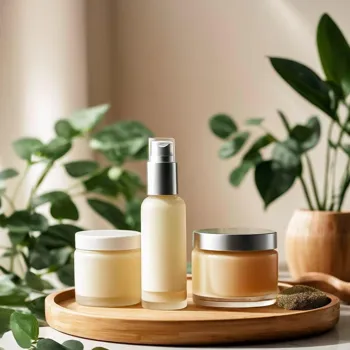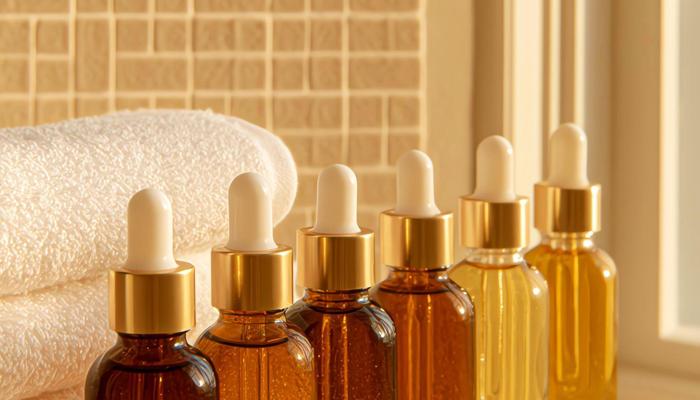Unlock the Power of Essential Oils for Radiant Skin! Discover the Best Oils & Safe Practices. Dive in!
In the realm of skincare, folks are increasingly turning to natural remedies, and essential oils are topping
the charts. These aromatic powerhouses, extracted from plants, boast a truckload of benefits – from soothing irritated skin to tackling acne.
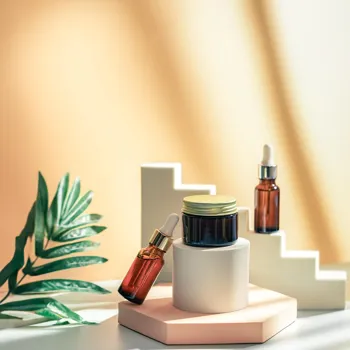
But before you rush out and start slathering them on, knowing which oils are best suited for your skin type and how to use them safely is super important. After all, these are potent concentrates, and a little knowledge can go a long way in achieving that healthy, glowing skin we all crave.
Choosing the right essential oil for your skin type
Choosing the right essential oil can feel like navigating a maze. But it really isn't! For oily skin, tea tree oil is a classic choice due to its antibacterial properties, helping to combat acne and reduce excess sebum.
Lavender oil, famed for its calming scent, is also beneficial for oily skin as it can help regulate oil production and reduce inflammation. Those with dry skin can benefit from the moisturizing properties of sandalwood oil. It helps to hydrate the skin and reduce the appearance of fine lines.
Geranium oil is another great option for dry skin as it can help to balance oil production and improve skin elasticity.
Dilute essential oils with carrier oils to avoid skin irritation
It's important to remember that essential oils are highly concentrated and can cause irritation if applied directly to the skin. Always dilute them with a carrier oil like jojoba oil, almond oil, or coconut oil. A standard dilution ratio is 1-3% essential oil to carrier oil.

For example, for a 1% dilution, add 5-6 drops of essential oil to 30ml of carrier oil. Always do a patch test before applying a diluted essential oil to a large area of your skin. Apply a small amount to your inner arm and wait 24 hours to see if any irritation occurs.
Tea tree, lavender, rosehip oils benefit acne-prone skin
For acne-prone skin, tea tree oil truly shines. Its antimicrobial properties help fight bacteria that cause breakouts, reducing inflammation and promoting healing. Diluted tea tree oil spot treatments can be effective for individual pimples.
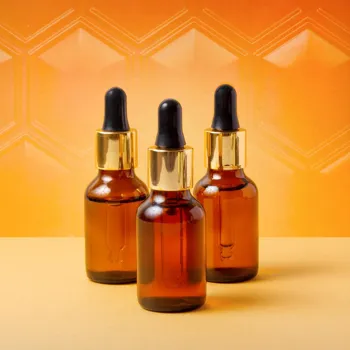
Lavender oil, known for its calming properties, is also a good choice for sensitive skin as it can help soothe irritation and reduce redness. It's gentle enough to be used on a regular basis. Rosehip oil, rich in vitamin A and antioxidants, can help to fade acne scars and improve skin tone.
Hydration with sandalwood and geranium for balanced skin
For those battling dry skin, hydration is key. Sandalwood's moisturizing properties can help to improve skin's elasticity and reduce the appearance of fine lines. Adding a few drops to your night cream can give an extra boost.
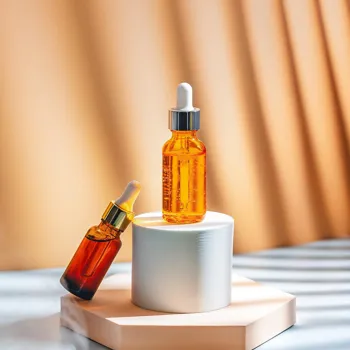
Geranium promotes balance, regulating both oil production and hydration levels. Chamomile is known for its anti-inflammatory and soothing properties, and can be a great addition to a bath or lotion. It can help calm irritated skin.
Citrus oils increase sun sensitivity, use pure oils & sunscreen
Sun sensitivity is a concern with certain essential oils, particularly citrus oils like lemon, bergamot, and grapefruit. These oils can make your skin more susceptible to sunburn, so it's best to avoid using them before going out in the sun. If you do use them, apply sunscreen diligently.

Also, be mindful of the quality of the essential oils you're using. Opt for 100% pure, therapeutic-grade oils from reputable suppliers. Beware of synthetic fragrances and diluted oils, as they won't offer the same benefits.
Exploring essential oils for various skin types
Now, let's dive deeper into specific essential oils and how they can benefit different skin types and concerns.
Tea Tree Oil
A warrior against acne, tea tree oil boasts powerful antibacterial and antifungal properties. It helps to unclog pores, reduce inflammation, and combat the bacteria responsible for breakouts.
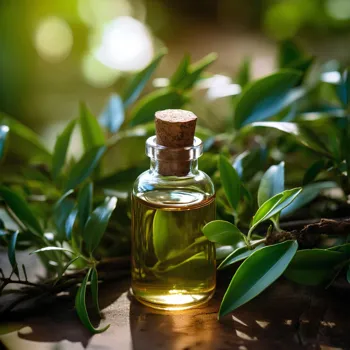
For spot treatments, dilute a drop or two of tea tree oil with a carrier oil like jojoba and apply directly to pimples. Avoid applying undiluted tea tree oil directly to the skin.
Lavender Oil
This versatile oil is known for its calming and soothing properties. It can help to reduce redness, inflammation, and irritation, making it a great choice for sensitive skin. Lavender oil can also help to promote relaxation and reduce stress, which can indirectly benefit your skin.
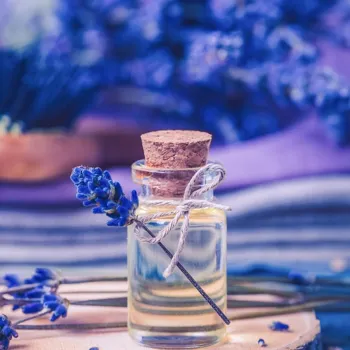
Add a few drops to your bath or diffuser for a relaxing aromatherapy experience.
Rosehip Oil
Rich in vitamin A, vitamin C, and essential fatty acids, rosehip oil is a powerhouse for skin regeneration. It helps to fade scars, reduce wrinkles, improve skin tone, and boost collagen production. Rosehip oil penetrates easily into the skin and doesn't leave a greasy residue.
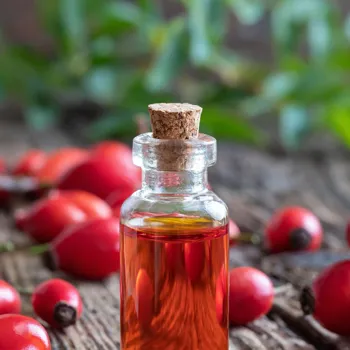
Apply it as a serum after cleansing and toning.
Sandalwood Oil
With its woody and grounding aroma, sandalwood oil is deeply moisturizing and beneficial for dry skin. It helps to hydrate the skin, reduce the appearance of fine lines, and promotes a healthy glow.
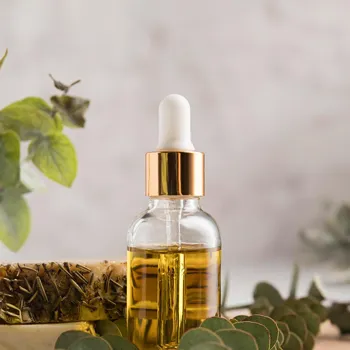
Sandalwood oil can also help to calm the mind and reduce stress making it perfect for your night skincare routine.
Geranium Oil
Known for its balancing properties, geranium oil helps to regulate oil production, making it suitable for both dry and oily skin. It can help to improve skin elasticity, reduce inflammation, and promote a healthy complexion. Geranium oil is a great addition to facial serums, lotions, and toners.
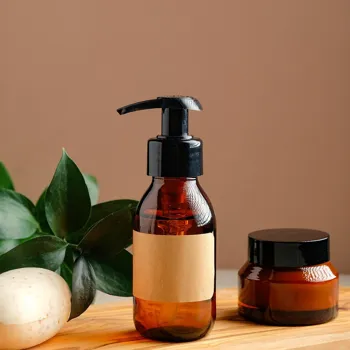
Chamomile Oil
With its gentle and soothing properties, chamomile oil is ideal for sensitive and irritated skin. It helps to reduce inflammation, calm redness, and promote healing. Chamomile oil also helps to relieve itching and dryness, making it a go-to remedy for eczema and psoriasis.
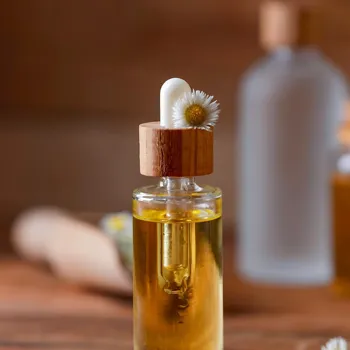
Add a few drops to the bathtub to calm skin.
Cleanser
Add a drop or two of tea tree oil (for oily skin) or lavender oil (for dry skin) to your regular cleanser for an extra boost.
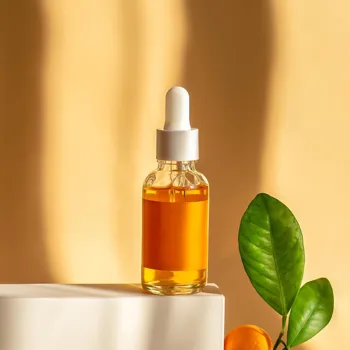
Toner
Create a simple toner by mixing a few drops of essential oil (such as rose water or aloe vera juice.)
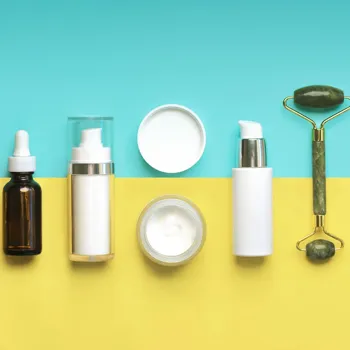
Serum
Essential oils like rosehip oil and sandalwood oil make excellent additions to serums. Apply a few drops after cleansing and toning.
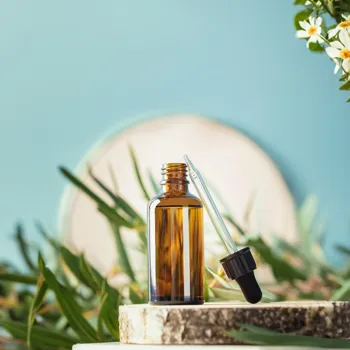
Moisturizer
Enhance your moisturizer by adding a drop or two of geranium oil (for balanced skin) or sandalwood oil (for dry skin).
Spot Treatment
Use a diluted tea tree oil as a spot treatment for pimples.
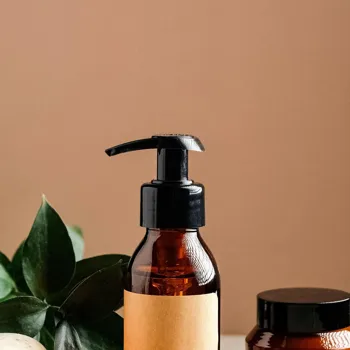
Facial Steam
Add a few drops of essential oil to a bowl of hot water and cover your head with a towel. Inhale the steam to cleanse your pores and relax your skin.
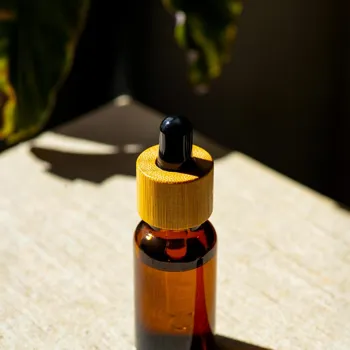
Consistency with essential oils boosts skincare
Remember, consistency is key when it comes to skincare. While essential oils can offer remarkable benefits, they're not a magic bullet. Combine them with a healthy diet, regular exercise, and a consistent skincare routine for best results. A few drops of essential oils can give you glowing results.
